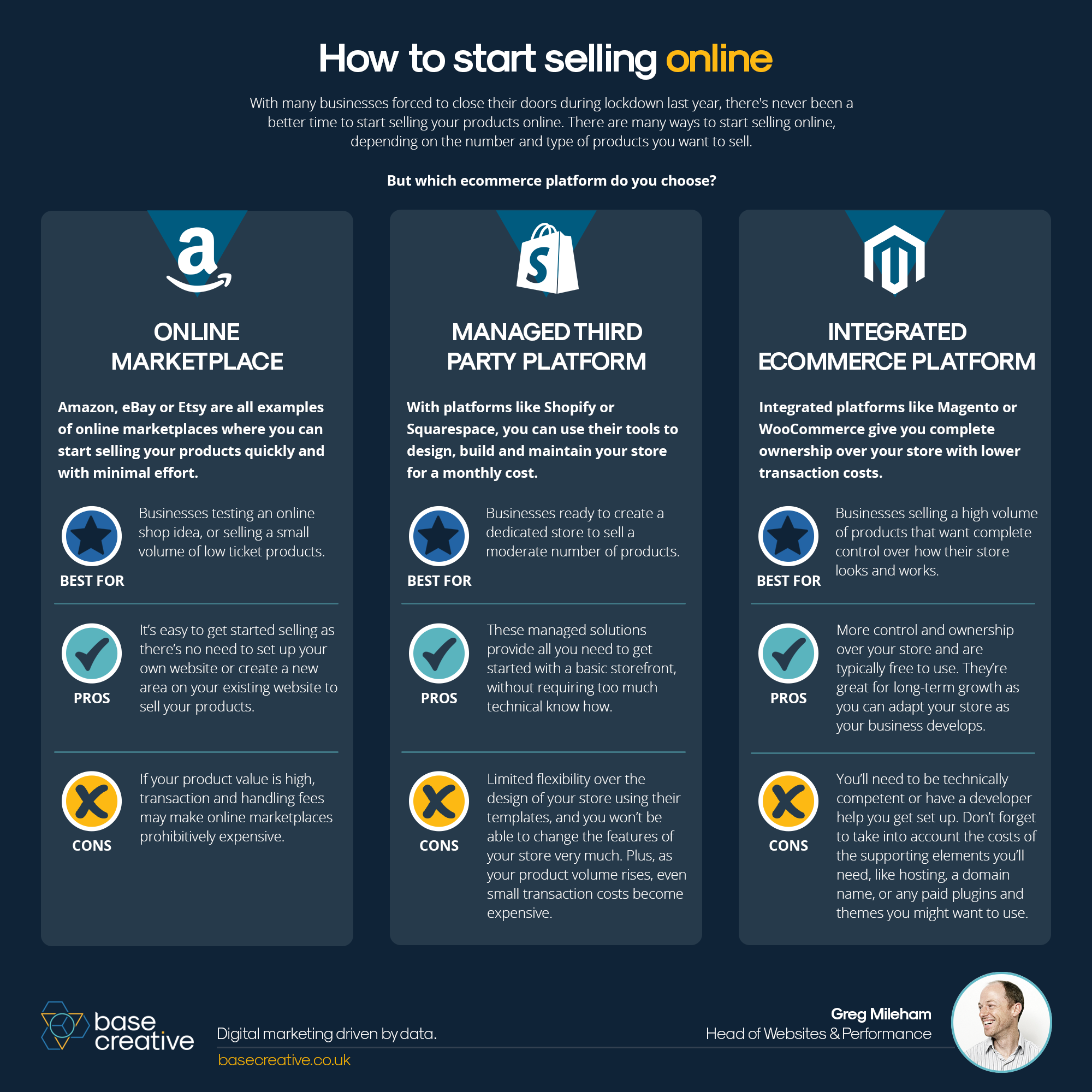TABLE OF CONTENTS
"I Knew My Store Could Do Better...
But I Didn't Know How"
That's what one of our clients, Jessica, told us. She was running a small mug store on WooCommerce—sales were okay, but stuck.
Until she discovered personalization.
Until she discovered Cmsmart.
Fast-forward 30 days:
- ✅ Her store was redesigned with AI product options
- ✅ Customers could design their own mugs with 3D preview
- ✅ AOV jumped by 42% — and she finally felt in control
Want to learn how she did it (and how you can too)?
🎓 Join our FREE 30-Day Email Course:
"Personalize, Launch & Scale – The Smart Ecommerce Way"
You'll get:
- ✔ 1 lesson a day, straight to your inbox
- ✔ Real store examples, demos & playbooks
- ✔ No tech jargon. Just strategy that works.
Join thousands of store owners learning how to scale smarter.
🎉 You're In! Thank You!
We've received your information and you're now part of our smart ecommerce journey.
Please check your inbox – your first email from the 30-Day Course is on its way!
📩 Didn't see it? Check your spam or promotions tab and mark us as safe.
We're excited to help you personalize, launch, and scale your store – the smart way.
TABLE OF CONTENTS
Related Post
Did you know that eCommerce sales are projected to reach a staggering $8 trillion by 2027? In a world where high transaction fees and limited flexibility can cripple potential...
Introduction: The Power of Custom Stickers for SMEs In today’s dynamic ecommerce landscape, custom stickers have emerged as a powerful tool for small and medium-sized enterprises (SMEs) to stand out,...
Introduction: Why Personalized Photo Frames Drive Ecommerce Success In the evolving ecommerce landscape, personalization is the key to winning customers’ hearts. When it comes to home décor, especially photo frames,...
Other Usefull Contents
You can see many success stories from our customers, and you may be one of them in the future












Web Design and Web Development are integral parts of website building, and while they have distinct roles, they are interrelated. However, many individuals are uncertain about the differences between the two.
To gain a better grasp of Web Design, Web Development, and their disparities, we recommend reading this article. In this topic, we provide an analysis of Website Design and Development types for a comprehensive understanding of the subject.
What is Website Design?
Definition
Website Design encompasses both the functionality and aesthetics of a site. The Web Designer is responsible for the website's layout and color scheme, amongst other visual aspects of the site. The primary objective of the designer is to create a visually appealing and user-friendly website.
Ultimately, a well-designed website aims to provide a satisfactory user experience. This is achieved by offering features that are both visually pleasing and easy to navigate, while also being cohesive with the brand and its target audience. As Web Design is primarily focused on the visual aspects of the user interface and experience, the designer typically produces or collaborates on deliverables such as storyboards, logo design, formatting, UI & UX design, and color palettes.
You may want to read:
eCommerce Website Design: Ultimate Guide in 2023
How to choose the best Website Design Company
Types of Website Design
There are several different types of Web Design, each with its own unique characteristics and benefits. Here are a few of the most common types of Web Design:
Flat Design
Flat Design is a minimalist approach to Web Design that focuses on simplicity and clean lines. This type of design uses bright colors, simple shapes, and minimalistic icons to create a clean and modern look.
Responsive Design
Responsive Design is an approach to Web Design that allows a website to adapt to different screen sizes and device types. This means that a website will look great on a desktop computer, a tablet, or a mobile phone.
Material Design
Material Design is a design language developed by Google that focuses on creating a consistent visual language across all of their products and platforms. Material Design uses bold colors, simple typography, and flat icons to create a modern and clean look.
Minimalist Design
Minimalist Design is a type of Web Design that focuses on simplicity, with a limited color palette and clean lines. This style of design is often used for blogs or portfolio websites.
Illustrative Design
Illustrative Design uses illustrations or hand-drawn elements to create a unique and creative look for a website. This type of design can be playful, whimsical, or sophisticated, depending on the intended audience and purpose of the website.
Typography-focused Design
Typography-focused Design is a type of Web Design that emphasizes typography as a central element of the design. This type of design often uses bold typography, creative fonts, and unique layouts to create a visually striking website.
Overall, the type of Web Design chosen will depend on the specific needs of the website and the intended audience. A well-designed website can help establish credibility, improve user experience and engagement, and ultimately lead to increased conversions and sales.
What does a Web Designer do?
The role of a Web Designer involves not only creating and designing the visual aspects of a website, but also maintaining it. They collaborate with a client or client's team to ensure that the website meets the needs of the business or organization.
Typically, Web Designers possess a degree in graphic design, information design, or architecture and have experience in programming or software development. They utilize software applications such as Adobe Photoshop, InDesign, and Dreamweaver. Web Designers are responsible for creating various layouts and designs for their clients' websites, including custom graphics and logos.
Additionally, they may contribute to user interface design, marketing strategy, and social media planning for their clients' sites.
Top 10 Best eCommerce Web Design Companies to Work With In 2023
Why is web design important?
Web Design is essential for businesses and organizations of all sizes. A well-designed website can help establish credibility and make a positive first impression on potential customers. It can also improve user experience and engagement, which can ultimately lead to increased conversions and sales.
First impression
In today's digital age, a website is often the first point of contact between a business and its customers. As such, it's critical that the website is well-designed and visually appealing. A poorly designed website can turn potential customers away and harm a business's reputation.
See more:
Why responsive Web Design is never out of date?
18 of the Best Website Design Ideas for Inspiration in 2023
User Experience
User Experience is another crucial aspect of Web Design. A website that is easy to navigate and provides a good user experience can keep users engaged and them to spend more time on the site. This can lead to increased engagement, conversions, and sales.
Branding
Branding is also an important consideration when it comes to Web Design. A well-designed website can help reinforce a business's brand identity and ensure consistency across all marketing channels. This can help establish brand recognition and increase brand awareness.
SEO
Search Engine Optimization (SEO) is another vital aspect of Web Design. Search engines favor websites that are well-designed, easy to navigate, and provide a good user experience. A well-designed website can help improve a business's search engine rankings and drive more traffic to the site.
Mobile optimization
With more people accessing the internet on their mobile devices, it's critical that websites are optimized for mobile. A well-designed website should be responsive and provide a good user experience on all devices. This can help improve engagement and conversions for mobile users.
In summary, Web Design is important for businesses and organizations because it can have a significant impact on their online presence, user engagement, and ultimately, their success. A well-designed website can help establish credibility, improve user experience and engagement, reinforce brand identity, improve SEO rankings, and increase conversions and sales.
What is Website Development?
Definition
Website Development revolves around the processes that enable a website to function properly. A Web Developer is accountable for transforming a Web Designer's concepts into a functional website through coding. It's important to note that there are two types of Website Developers: Front-end and Back-end.
The Front-end developer focuses on creating code that dictates how the website presents the Web Designer's ideas. Meanwhile, the Back-end developer is responsible for effectively managing the data in your website's database and facilitating the display of that data on the website's Front-end.
Best Ecommerce Web Development Services
Types of Website Development
There are several different types of Web Development, each with their unique characteristics and benefits. Here are a few of the most common types of Web Development:
Front-end Development
Front-end Development involves creating the user interface and user experience of a website. This type of development focuses on the visual aspects of a website, such as the layout, colors, and typography. Front-end Developers use HTML, CSS, and JavaScript to create responsive and user-friendly websites.
Back-end Development
Back-end Development involves creating the server-side of a website. This type of development focuses on the functionality of a website, such as processing user input and retrieving data from databases. Back-end Developers use languages such as PHP, Python, and Ruby to create dynamic and interactive websites.
Full-stack Development
Full-stack Development involves working on both Front-end and Back-end development. This type of development requires a broad range of skills and knowledge, as developers need to be proficient in both the visual and functional aspects of a website.
Mobile development
Mobile Development involves creating mobile applications for iOS and Android devices. This type of development requires knowledge of languages such as Swift and Kotlin, as well as an understanding of mobile user interface design and user experience.
eCommerce Development
eCommerce Development involves creating online stores and marketplaces. This type of development requires knowledge of payment gateways, inventory management, and shopping cart systems, as well as proficiency in Back-end Development.
Content Management System (CMS) Development
CMS Development involves creating custom Content Management Systems for websites. This type of development requires an understanding of database design, server-side programming, and user interface design.
Overall, the type of Web Development chosen will depend on the specific needs of the website or application. A well-developed website or application can provide users with a seamless experience, improve search engine rankings, and help a business grow and expand. It is essential to work with experienced Web Developers who can create a website or application that is tailored to the unique needs of the business and its customers.
What does a Web Developer do?
The primary responsibility of a Web Developer is to develop both the Front-end and Back-end of a website while ensuring that it adheres to all design, technical, and accessibility guidelines. They may also customize or modify existing websites to meet client needs.
Typically, Web Developers have a degree in computer science or a related field and are proficient in programming languages such as HTML, CSS, and JavaScript.
Apart from Website Development, Web Developers may also create custom applications for their clients' businesses or organizations. They collaborate with clients to create mockups or prototypes of the website and then proceed to code and create the actual website content and structure once the initial design is agreed upon.
Why is Website Development important?
Web Development is also essential for businesses and organizations of all sizes. A well-developed website can provide users with a seamless experience, improve search engine rankings, and help a business grow and expand.
Functionality
Web Development involves creating the functionality of a website. This includes everything from creating interactive features to ensuring that the website is responsive and works on all devices. A well-developed website should be easy to navigate, provide a good user experience, and be designed with the end user in mind.
Customiazation
A Web Developer can customize a website to meet the specific needs of a business or organization. This can include adding custom functionality or modifying existing features. Customization is important because it allows businesses to create a website that is tailored to their unique needs and requirements.
Security
Security is another critical aspect of Web Development. Web Developers are responsible for ensuring that a website is secure and protected against threats. This includes implementing security measures such as SSL certificates, firewalls, and regular backups. A secure website can help protect a business's reputation and sensitive information.
Performance
Web Development can also impact the performance of a website. A well-developed website will load quickly and provide a smooth user experience. This can help keep users engaged and encourage them to spend more time on the site.
SEO
Search engine optimization (SEO) is another important consideration when it comes to Web Development. A well-optimized website can improve search engine rankings and drive more traffic to the site. This can help businesses attract new customers and increase their online visibility.
Scalability
Finally, scalability is an important consideration when it comes to Web Development. A well-developed website can be easily scaled to accommodate growth. This means that as a business or organization grows, the website can be modified and expanded to meet its changing needs.
In summary, Web Development is important for businesses and organizations because it can have a significant impact on their online presence, user experience, and ultimately, their success. A well-developed website can provide users with a seamless experience, improve search engine rankings, and help a business grow and expand. It is essential to work with experienced Web Developers who can create a website that is tailored to the unique needs of the business and its customers.
Web Design vs Web Development: The Differences
Although there is some overlap between Web Design and Web Development, it is not uncommon to find a developer who has knowledge of both. Nonetheless, it is crucial to invest in both aspects to provide users with an outstanding experience. They collaborate to create a website that is user-friendly, functional, and visually appealing. The following are some of the most notable differences between the two.
Web Design Vs. Web Development — What's The Difference?
Website Developers are not responsible for creating assets
The principal distinction between Web Design and Web Development lies in the fact that Web Designers create visual elements that contribute to the site's aesthetics and overall user experience, while Web Developers are tasked with implementing those functionalities. The developer's role is to transform the designer's mockups, wireframes, and other visual assets into code using JavaScript, CSS, and HTML. In essence, the Website Designer is responsible for producing the visual assets, while the Website Developer uses code to integrate them into the website.
Website Designers are not responsible for writing code
Web Design and Web Development differ in the sense that typically, designers are not responsible for coding. While there may be some exceptions, designers are not held accountable for coding tasks.
The primary responsibilities of a Web Designer involve using tools such as Photoshop to create images, designing layouts, and developing mockups. These tasks do not require coding, which is where Web Developers come in.
Alternatively, some companies choose to work with 'no code' website builders, allowing designers to enhance the user experience and aesthetics of the site without the need for coding.
Web Development cost more than Web Design
When it comes to cost, Web Design is generally less expensive than Web Development. According to ZipRecruiter, Web Developers usually earn $36/hour, while designers make an average of $29/hour. Although there may be exceptions, in most cases, Web Design is more affordable than Web Development.
The reason for this is that Web Development requires specialized training in coding. Additionally, supply and demand also play a role in determining average costs, with more Web Designers than Developers available in the market. However, if you are looking for a highly skilled Web Designer or Developer, you can expect to pay more than the average rates.
Web Development seeks to add functionality to the site, Web Design aims to add aesthetic appeal
It is crucial to keep in mind that the distinction between Web Design and Web Development centers on their individual roles in website creation. Web Development is responsible for adding functionality to the site through code, while Web Design aims to improve the user experience, interface, and aesthetics of the website, making it more appealing to visitors. Both aspects are equally vital for creating a successful website.
Web Developer vs Web Designer | Difference Between a Web Developer and Web Designer
Website Design
1
Turn ideas into visual designs
Turn designs into fully functional websites
2
Requires design skills as well as creative thinking.
Requires programming skills and coding knowledge.
3
The cost of hiring a design service is usually lower than the cost of developing a website
4
Role: manage website design and layout.
Role: Building the functionality of the website and make sure it works correctly
5
Using design tools such as Adobe Photoshop, Illustrator, Dreamweaver, Sketch, v.v.
Use programming languages such as HTML, PHP, JavaScript, CSS, Python, Ruby, jQuery, v.v.
Web Design vs Web Development: The Similarities
Since Web Design and Web Development share the common goal of creating a user-friendly website, they have several similarities. Exploring the similarities between these two disciplines can provide insight into why they are both crucial for building a successful website.
Both have role to play in creating an engage user experience
To retain customers on your website, it is crucial to prioritize user experience. This is because a positive user experience fosters a favorable perception of both the website and the product. Conversely, if the user experience is subpar, customers are likely to become frustrated and seek alternative options.
You may be wondering how Web Development and Design intersect in this regard. The answer is straightforward. While design ensures that customers can navigate the website with ease, development ensures that the website functions correctly. A visually appealing website that does not work correctly is of no value to consumers.
Both musk work in unison to develop a cohesive site
If you're wondering whether investing in Website Design and Development is crucial, the answer is yes. Both aspects must collaborate to create a cohesive and functional website. Without design, a website would lack personality, while without development, it would not work correctly. The result of design and development working in harmony is an outstanding web experience.
Conclusion
It is undeniable that Web Design and Web Development are distinct professions, each requiring unique skill sets. A skilled Web Designer can create an impressive website without knowing how to code, while many successful developers possess design skills. However, before selecting a path, it is essential to understand the fundamental differences between these two fields.
As evident, not everyone possesses the ability to use Photoshop for designing websites, but they can construct intricate websites using WordPress plugins and JavaScript scripts. Therefore, it is crucial to make a wise decision if you want to succeed in either field.
Our Website Design Service with leading experts in the field can help you turn your ideas into reality. With hundreds of projects that have been successfully implemented, we are confident that we can help you complete the project in the best way. Contact us for advice from our experts.